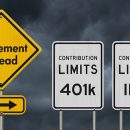Health Savings Account (HSA) and Its Impact on Savings for Retirement

Most Americans think of a Health Savings Account (HSA) as a way to help cover medical bills. Swipe your HSA card at the pharmacy, pay for a prescription, and forget about it. Simple enough.
But here’s what most people miss: that little account sitting next to your insurance plan might be one of the most powerful retirement savings tools you have.
For mid-career professionals juggling 401(k)s, IRAs, and rising healthcare costs, understanding how an HSA fits into the retirement equation can make a meaningful difference in their post-retirement years.
This article explains what an HSA is and how to strategically use it to fund both your health and your retirement.
What is an HSA used for: The basics beyond the basics
At its core, an HSA is a tax-advantaged savings account paired with a high-deductible health plan (HDHP). You can contribute pre-tax money, let it grow tax-free, and withdraw it tax-free, provided the funds are used for qualified medical expenses.
It’s sometimes called the triple-tax benefit: no tax going in, no tax while growing, and no tax coming out.
But the real power of an HSA lies in what most people don’t do with it. Many treat it as a spend-now account, using it for immediate doctor visits or prescriptions.
The smarter move?
Treat it like an investment vehicle.
Most HSA providers let you invest the funds, just like in a 401(k), once your balance crosses a certain threshold. Over time, those HSA savings can grow substantially, forming a reserve specifically for healthcare in your later years.
Another important distinction: your HSA belongs to you, not your employer. Even if you change jobs or retire, the account (and every dollar in it) moves with you. There’s no “use it or lose it” rule. That portability makes it a long-term financial asset.
401(k) vs HSA savings: Companions, not competitors
When comparing 401(k) vs HSA, one is tempted to ask, “Which one’s better?”
But that’s the wrong question.
Both accounts serve different roles, and together, they can complement each other beautifully.
A 401(k) is your primary engine for retirement wealth. It’s designed to fund your lifestyle — housing, travel, and day-to-day expenses — once your paychecks stop. An HSA, meanwhile, focuses on the inevitable: healthcare. And if there’s one expense retirees consistently underestimate, it’s medical costs. As per the 2025 Fidelity Retiree Health Care Cost Estimate, an average 65-year-old individual may need $172,500 to cover healthcare expenses in retirement. That’s where your HSA steps in.
Tax-wise, an HSA even edges out a 401(k). Contributions reduce taxable income just like a 401(k), but while 401(k) withdrawals are taxed as ordinary income later, HSA withdrawals for medical expenses remain entirely tax-free. After age 65, you can also use your HSA for non-medical purposes, just like a traditional IRA, with no penalties (though you’ll owe regular income tax).
That flexibility gives HSAs a dual identity: part healthcare fund, part retirement reserve. And unlike a 401(k), there are no required minimum distributions (RMDs). You can let the money sit, grow, and only touch it when you’re ready.
If your employer matches your 401(k), always prioritize contributing enough to get that match; it’s essentially free money. But once that’s secured, consider maxing out your HSA next. The combination of tax advantages and flexibility makes it a stealth retirement vehicle that many overlook.
HSA for retirement: A strategy hiding in plain sight
Using an HSA for retirement doesn’t replace your 401(k) or IRA, but adds another strategic layer. Think of it as creating a financial firewall between your healthcare costs and your lifestyle savings.
Here’s how the strategy works in practice: instead of spending from your HSA now, pay for smaller health expenses out of pocket and let your HSA funds remain invested. The longer those funds stay untouched, the more compounding can work its quiet magic. Ten, fifteen, twenty years later, you’ll have a substantial healthcare war chest waiting.
By the time you retire, you can use your HSA to pay for Medicare premiums, long-term care, and other qualified expenses completely tax-free. And since you’re likely to spend more on healthcare with age, it’s one of the most tax-efficient ways to prepare for those costs.
This approach also offers a subtle psychological benefit: it separates “health money” from “life money.” You won’t have to choose between a vacation and a medical bill. One account protects your future comfort; the other protects your health.
Understanding HSA retirement rules
To get the most from your HSA, it’s crucial to understand the HSA retirement rules that govern contributions and withdrawals.
- Eligibility: You must be enrolled in a high-deductible health plan (HDHP) to contribute. Once you enroll in Medicare, you can no longer add money to your HSA, though you can still use it.
- Contribution limits for the year 2025: $4,300 for self-only coverage and $8,550 for family coverage, plus a $1,000 catch-up contribution if you’re 55 or older.
- Growth and investment: After meeting your provider’s minimum balance (often around $1,000 to $2,000), you can invest the rest in mutual funds or ETFs.
- Rollover: Unused funds carry over each year, compounding indefinitely.
These rules may sound rigid, but they create predictability. You know exactly what’s allowed and what’s not, which helps in long-term planning. The key is to play by these rules early, especially before you reach Medicare age, because that’s when contribution doors close for good.
HSA retirement withdrawals: How and when to use them
When it comes to HSA retirement withdrawal, timing and purpose make all the difference.
If you withdraw money before age 65 for non-medical expenses, the IRS takes a 20% penalty, on top of regular income tax. That’s a harsh reminder that HSAs are meant primarily for healthcare. But after age 65, the penalty disappears. You can use the money for anything you like: travel, home repairs, or even to supplement retirement income. You’ll just pay income tax, just like a traditional IRA withdrawal.
Withdrawals for qualified medical expenses remain tax-free at any age. That includes doctor visits, prescriptions, dental work, vision care, and, after 65, even Medicare premiums or certain long-term care costs.
And unlike your 401(k), your HSA doesn’t force you to take distributions. No RMDs are breathing down your neck. You decide when and how to use the funds, or not at all.
For example, say you’ve paid $2,000 out of pocket for medical expenses this year. If you’ve saved those receipts, you can reimburse yourself from your HSA any time in the future, even years later. That reimbursement is tax-free, and in the meantime, your invested funds kept growing. It’s one of the most underused tactics in personal finance, letting your HSA act as a compounding machine while still keeping reimbursement flexibility.
The broader impact: HSAs and the retirement landscape
The impact of HSAs on retirement savings is structural. Health costs are one of the most volatile and anxiety-inducing parts of retirement planning. HSAs bring structure and predictability to that chaos.
Think of your overall retirement plan as a three-legged stool:
a. Your 401(k) or IRA for lifestyle expenses.
b. Social Security or a pension for baseline income.
c. Your HSA for healthcare costs.
Each leg supports the other. When you fund your HSA, you’re preventing forced withdrawals from your 401(k) during market downturns. And you’re diversifying your tax strategy`.
Because HSAs combine immediate tax deductions, tax-free growth, and tax-free qualified withdrawals, they create a “triple play” unmatched by any other account type. Used right, they can offset healthcare inflation, reduce future tax exposure, and extend the longevity of your broader retirement assets.
Avoiding common pitfalls
Despite their advantages, HSAs are often misused or underused. Some people forget that:
- Once enrolled in Medicare, you can no longer contribute, so timing your Medicare enrollment strategically can add thousands more to your balance.
- Poor recordkeeping can disqualify reimbursements. Always retain receipts for any medical expenses you might claim later.
- Not all HSAs are created equal. Some charge high monthly fees or limit investment options. If your HSA provider feels restrictive, consider rolling over to one with better choices and lower costs.
Small operational mistakes can erode long-term tax benefits, so treating your HSA with the same seriousness as your 401(k) or IRA is key.
Making the most of your HSA for retirement
If you’re in your 40s or 50s, your HSA for retirement might quietly be the most underappreciated asset in your portfolio. It’s not flashy, but its design rewards patience and planning.
The combination of tax benefits, investment growth, and flexibility makes HSAs unique. Unlike a 401(k), it doesn’t demand withdrawals. Unlike a Roth IRA, it gives you an upfront tax break. And unlike most savings accounts, it directly targets the one expense you can’t avoid: your health.
As retirement nears, consider how to integrate your HSA with your broader strategy. Maximize contributions while you can, invest the balance for growth, and document every qualified expense you pay out of pocket.
And before you make a big allocation or withdrawal decision, consult with a qualified financial advisor. They can help you align your HSA strategy with your income level, tax bracket, healthcare needs, and long-term goals, ensuring your money works harder for you now and in retirement.
Because when planned wisely, an HSA is your health and wealth account, a rare bridge between today’s care and tomorrow’s comfort. Explore our financial advisor directory to find seasoned professionals who can create a personalized retirement plan to look after your healthcare needs.










